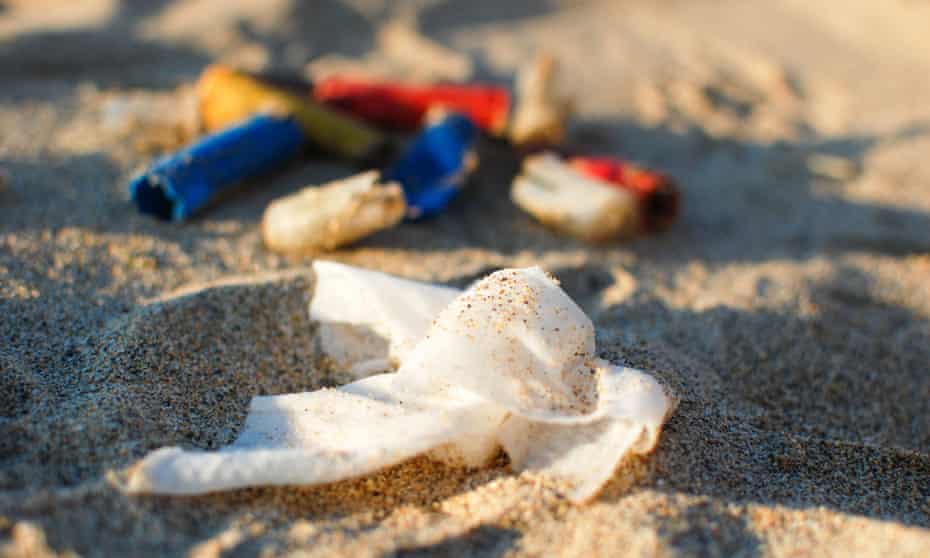Boots to stop selling plastic-based wet wipes in UK
Pharmacy joins other retail chains in committing to end sales of plastic wipes by end of this year

The high street chemist Boots is joining the ranks of retailers vowing to stop selling all wet wipes that contain plastic fibres, as part of efforts to cut non-biodegradable waste.
The retailer said it was committing to stop selling all wet wipes containing plastic by the end of the year and would replace them with plant-based alternatives.
Wipes are often flushed down the toilet by consumers, causing environmental damage by blocking sewers and waterways.
Boots said it is one of the biggest sellers of wet wipes in the UK, having sold more than 800m over the last year online and in its 2,200 stores, from 140 product lines across its skincare, baby, tissue and health care ranges. It said its sales represented about 15% of all beauty face wipes sold in the UK.
The move follows Boots’ earlier decision to reformulate its own-brand ranges of wipes. It has written to its suppliers in the UK and Ireland to ask them to follow suit.
The company, which is owned by the US health group Walgreens Boots Alliance, is joining other retailers including Tesco and the health food chain Holland & Barrett in banning the sale of plastic-based wipes. The Body Shop beauty chain has also phased out all face wipes from its shops.
Steve Ager, the chief customer and commercial officer at Boots UK, said its customers were becoming more aware of their impact on the environment: “They are actively looking to brands and retailers to help them lead more sustainable lives.
“We removed plastics from our own-brand and No7 wet wipe ranges in 2021, and now we are calling on other brands and retailers across the UK to follow suit in eliminating all plastic-based wet wipes.”
It is estimated that as many as 11bn wet wipes are used in the UK each year, with the majority containing some form of plastic, many of which are flushed away after use. In recent months, MPs have heard evidence about wet wipes forming islands within rivers, causing the waterways to change shape as the products pile up.
They are also a significant component of the fatbergs that form in sewers, leading to blockages that require complex interventions to remove.
Microplastic pollution – often found in plastic packaging, pipes and some bottles – poses a serious threat to marine animals, and has recently been discovered lodged deep in the lungs of living people.
Boots said its own-brand wipes would be labelled as “do not flush”, while those developed for intimate use would be formulated to meet flushability standards.
The retailer said it had also expanded its ranges of reusable and refillable products over the last two years, and was working to remove plastic from product packaging and from its online deliveries.
